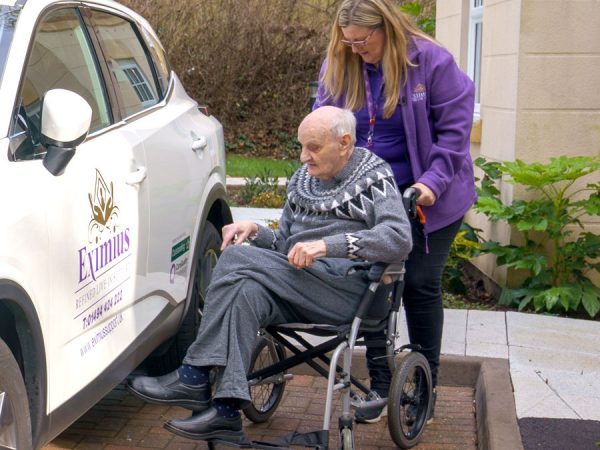
It can be overwhelming trying to understand, let alone decide between, the different care options available for you or your loved one. Every family has its own unique set of circumstances, concerns, and resources behind its journey to locate the right type of care. We recognise it can be challenging when making your choice.
We hope our comprehensive list of the pros and cons of Domiciliary Care versus Residential Care versus Live-in Care can help you make the right decision for you.
Domiciliary Care
Domiciliary care can also be known as hourly care and is for an agreed, fixed number of hours a day or week. A carer will visit you or your loved one in their own home and assist with meals, cleaning, shopping, and company within those set hours.
Advantages of domiciliary care
- Domiciliary care can enable you or your loved one to maintain some independence whilst staying within your own home.
- Remaining in familiar surroundings can provide stability and a sense of normalcy.
- It can be a flexible solution – with the type and frequency of care given able to be increased or decreased as needed.
- Domiciliary care is more widely known and can be more affordable than other care options as you pay only for your essential care needs.
Disadvantages of domiciliary care
- Domiciliary care can suffer from a lack of consistency or higher turnover of care workers which can be unsettling for those in receipt of the care. It is harder to cope with or build up trust with different people coming and going.
- Care is only on hand at the agreed times which can cause concerns of vulnerability and safety if help is unexpectedly needed outside of these hours.
- The type of care available can be limited and less suitable for more complicated health conditions.
Residential care
Residential care is usually for older people who may need support with day-to-day tasks such as washing or dressing but don’t require more specialist nursing care or dementia support.
Advantages of residential care
- Residential care can offer companionship as residents are living with people often of a similar age, and in similar circumstances.
- There can be a range of organised activities available designed to stimulate the mind and the body such as light exercise, quizzes, arts and crafts, etc.
- Trained and qualified personal and medical care staff are on duty round the clock.
- Residents will have a room to call their own which can be made to feel like home, with personalised touches.
- There is no need for you or your loved one to have to worry about grocery shopping, paying bills, gardening, or the general upkeep of a property.
Disadvantages of residential care
- The loss of independence and control can be hard to adjust to. Everyday occurrences that require support must be timetabled with staff availability and the needs of the other residents considered. This can mean a schedule for what time you get up and go to bed to what and when you eat.
- There can be restrictions on accessing the world outside of the residential home, which will be dependent upon staff and facilities required to support any planned excursions.
- Although residential care homes are staffed 24/7, the ratios of carers to residents and staff shift patterns can mean help is not always immediately available.
- Despite living in a community with lots of people, the absence of family and friends can result in loneliness.
- Feelings of displacement and rejection can be experienced in those who are no longer living in their own homes.
- The location of a residential home can result in visits from family and friends being less spontaneous and more restricted.
Residential care homes are typically the most expensive care option.
Live-in care
Live-in care provides support for day-to-day life by professional carers, or companions, who live with client’s allowing them to remain in their own homes. Personal, medical, and domestic needs are taken care of and this can comprise of live-in day care, live-in night care, live-in clinical care and live-in respite care.
Advantages of live-in care
- A bespoke care plan can be created and individually tailored around the personal, medical, and domestic needs of you or your loved one.
- Live-in care enables independence and safety for longer in the comfort of home, surrounded by familiar, personal belongings and memories. This can have an incredibly positive impact on general health and wellbeing.
- Live-in care can be built around an existing routine; making sure the favourite television programme isn’t missed, the regular catch ups with children or grandchildren can go ahead or the weekly trip to the Post Office still takes place. Clients can enjoy their own outside space, keep loved pets with them, and hobbies and interests can continue to be pursued.
- Visits with friends, family and connections with the local community can continue uninterrupted and unscheduled.
- Live-in care provides consistency in the care workers who are coming into the home. The same handful of familiar faces supporting you or your loved one, who learn the likes and dislikes, can quickly build into a trusting and reliable relationship, as well as companionship.
- Because the care is within the home, there is peace of mind that help is always immediately at hand, 24/7.
- It can be a particularly good and affordable option for couples, where maybe one or both need help, enabling them to stay together for longer, within their own home.
- Live-in care can be a cost effective and safe alternative to other types of care.
Disadvantages of live-in care
- Homes need to be able to accommodate the space and facilities needed for a care worker, which will depend upon the type of live-in care being used. For example, a private bedroom may be required, with clean bedding and towels and internet access.
- Living with a stranger can be challenging for some to begin with. At Eximius, we carefully select a carer or companion who has the experience, training, and personality to match the needs of our clients. One huge advantage our clients enjoy, is they get to know their carer or companion well, rather than having to cope with different people coming and going. Their carer or companion becomes an integral part of their life and a close family friend. This is particularly relevant when our clients require assistance with personal care. Having a companion that you know and trust to help in this sensitive situation is important.
- There can be anxiety when a trusted and familiar care worker goes on holiday or is unwell and unable to work. At Eximius, when your Live-In Care Worker is due to go on a break, a second Care Worker will be introduced. A number of Eximius carer profiles are sent over to the client before handover takes place. Profiles are carefully matched to the client to ensure they share similar interests and hobbies. This process helps ensure that breaks are covered correctly, a client is satisfied and a smooth handover occurs. If a new carer is being introduced, then we will aim to send a supervisor as well for a smooth handover and to make sure nothing is missed.
Next steps
Whatever you decide, it’s essential to do your research and work with a care provider with a proven track record of delivering exceptional services geared to each individual client. Every family has a unique set of circumstances and resources driving their journey to find the right care provision and it’s important all your questions and concerns are addressed.
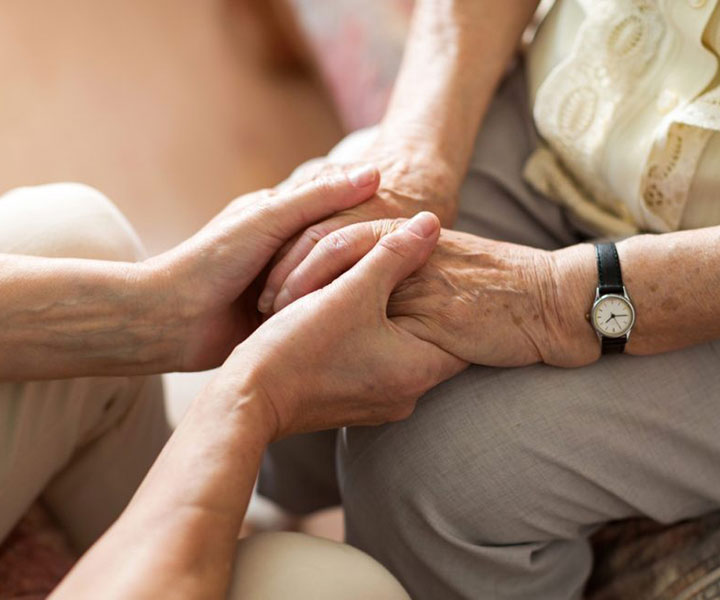
Get in touch. We can help
If you or a loved-one would like to understand more about the different care options available, please contact us for further information. We’d love to help.
Email: info@eximiussupport.uk

Starting a conversation with your loved one about their need for care is rarely easy. It’s emotional, delicate, and sometimes uncomfortable, especially when the person you’re talking to is someone who has always cared for you. Whether it’s a parent, partner, or close family member, bringing up the need for care can feel like you’re crossing a line.
But the truth is, recognising when extra help is needed and talking about it early is an act of love. It’s about supporting someone you care about to live safely, comfortably, and with dignity.
At Eximius Support, we’ve spoken with hundreds of families navigating this very moment. We understand the hesitation, the guilt, the anxiety and the desire to get it right. We want to help you approach the conversation gently, plan together, and move forward with care that truly supports your loved one’s quality of life.
Opening the Door to a Difficult Conversation
No one wants to feel like their independence is being taken away. That’s why how you start the conversation matters just as much as what you say. These conversations shouldn’t focus on pointing out any decline; they’re about offering reassurance and solutions. You’re not telling them what to do; you’re inviting them to talk about what they want and need.
The timing is important too. If you’ve noticed things like increased forgetfulness, difficulty managing everyday tasks, or signs of loneliness or frailty, it may be time to talk. But choose a moment that’s calm and relaxed, perhaps over a cup of tea or during a quiet walk, where neither of you feels rushed or overwhelmed.
Talking With, Not At
One of the most powerful things you can do in this moment is listen. It’s natural to feel protective or want to take charge, but true care planning begins with collaboration.
You might begin by gently expressing your concern like this:
“I’ve been thinking about how much more you’ve been doing on your own lately. I wonder if there’s anything we could do to make life a little easier for you.”
Framing things in terms of shared problem-solving, and not blame or worry, makes a real difference. Focus on support, not loss. For many people, having some extra help at home means more energy, more freedom, and more time to spend on the things they enjoy.
Planning Care Together, Not for Them
Once your loved one is open to the idea of support, take things one step at a time. Avoid overwhelming them with decisions. Instead, explore possibilities together and take the time to understand their preferences and fears.
Start with small questions like:
“What would make daily life feel easier for you?”
“Would you like to have someone help around the house a few times a week?”
You can then look into a care needs assessment through their GP or local authority. From there, it’s easier to understand what kind of support might be most helpful. This could be occasional home visits, live-in care, or something in between.
At Eximius Support, our live-in care services are designed to feel like part of the home, never intrusive, always respectful. It’s care built around the person, not a checklist.
When It’s a Parent and the Roles Feel Reversed
Talking to a parent about care can be especially difficult. You may feel guilt, sadness, or even resistance from them. It’s important to honour their lifetime of independence while still acknowledging the realities they now face.
Let them lead where they can. Acknowledge their worries without rushing to fix everything. Sometimes, just saying, “I know this is hard to talk about, but I want to make sure you feel safe and supported,” can open the door to a deeper, more honest conversation.
These discussions often unfold over time. You may need to return to it gently, several times, before they’re truly ready to consider care.
Resources and Support Along the Way
You’re not alone in this. Reaching out to a trusted care provider, like Eximius Support, can provide clarity and peace of mind. We’ve helped many families find the right balance with care that gives loved ones the support they need while helping them stay in the home they love.
We also offer a Free Downloadable Guide to help families start this conversation with confidence. It includes:
- Gentle conversation starters
- Common concerns and how to address them
- A practical checklist for early care planning
A Final Word from the Heart
We know how heavy this can feel. You’re doing something brave, putting love into action. These conversations aren’t easy, but they are necessary. And when they’re handled with patience and compassion, they often lead to stronger relationships, better support, and a much more hopeful path forward.
At Eximius Support, we’re here to walk alongside you. Whether you’re just beginning the conversation or ready to explore care options, we’re here to offer expert guidance. Get in touch with us today to learn more about how we can help your family plan care with dignity and heart.
Further Reading
How Carers Can Manage Challenging Dementia-Related Behaviours
Domiciliary, Residential, or Live-in Care – how to understand which is the right choice for you

Another Fantastic Recognition for Eximius Live-in Support
We are over the moon to share that Eximius Live-in Support has been awarded Highly Commended at the Palliative Care at Home Provider Awards!
This recognition means the world to our dedicated team, who work tirelessly to provide compassionate, expert support to people at the most vulnerable times in their lives. To be acknowledged in this category is a powerful reminder that our approach – combining professional excellence with a deep commitment to dignity and comfort – is making a meaningful difference.
The Judge had this to say,
“Eximius Live-In Care places equal emphasis on both the individual and their family, underpinned by a holistic and communicative approach. They have developed a bespoke auditing tool to uphold and enhance high standards of care, complemented by a robust mentoring programme that fosters continuous learning and professional growth.”
Even more exciting? This marks our third award in just a few short weeks – with two wins and now this Highly Commended honour under our belt. It’s an incredible season of recognition, and we couldn’t be prouder.
To everyone in the Eximius team – thank you. And to the families who trust us with your care – we’re honoured to walk alongside you.
Here’s to continuing to raise the standard of live-in support.

Multiple sclerosis (MS) affects more than 150,000 people in the UK. It’s a lifelong condition that impacts the brain and spinal cord, causing a wide range of symptoms like fatigue, vision problems, and difficulty walking. But not everyone experiences MS in the same way. That’s because there are different types of MS.
We believe in providing care that meets each person’s individual needs. To do this, we start with understanding the type of MS someone is living with. Here, we’ll explain the different types of MS, how they affect people, and how the right care can make life more manageable.
So, What Is MS?
Multiple sclerosis is an autoimmune condition, which means the body’s immune system mistakenly attacks its own tissues. In this case, the protective layer (called myelin) around nerve fibres in the central nervous system. This causes inflammation and damage, which slows or blocks the messages between the brain and body.
The symptoms of MS vary depending on where the damage occurs. These might include:
- Fatigue
- Muscle weakness or stiffness
- Balance and coordination problems
- Bladder and bowel issues
- Vision changes
- Numbness or tingling
- Memory and thinking difficulties
Over time, these symptoms may come and go, get worse, or remain stable, depending on the type of MS.
The Four Main Types of MS
1. Relapsing-Remitting MS (RRMS)
This is the most common form of MS, affecting around 85% of people when they’re first diagnosed. In RRMS, symptoms appear during flare-ups or “relapses”, then improve during “remission” periods. During remission, some symptoms may completely disappear, while others may linger. These periods of remission can last for weeks, months, or even years.
Carers can help by recognising early signs of relapse, assisting with rest and recovery, and making adjustments during flare-ups to support mobility and comfort. Managing stress and fatigue is also key.
2. Secondary Progressive MS (SPMS)
Over time, many people with relapsing-remitting MS will transition into secondary progressive MS. In SPMS, symptoms gradually worsen, and periods of remission become less frequent. The change from RRMS to SPMS can be subtle. Some people may not notice the shift at first, but over time, daily life and simple tasks can become more difficult.
A carer can help by offering steady, long-term support and adjusting routines as the person’s needs change. This might include mobility aids, personal care, and emotional reassurance.
3. Primary Progressive MS (PPMS)
About 10–15% of people with MS are diagnosed with primary progressive MS. From the start, symptoms gradually get worse without clear relapses or remissions. PPMS usually affects mobility first, such as walking or leg strength, and progresses steadily. Unlike RRMS, it doesn’t come in waves.
Carers can provide practical help with movement, bathing, dressing, and household tasks. Emotional support is also important, as the lack of “good days” can be hard to accept.
4. Clinically Isolated Syndrome (CIS)
CIS is a one-time episode of MS-like symptoms caused by inflammation in the central nervous system. Now, not everyone with CIS goes on to develop full MS, but if brain scans show damage similar to that found in MS, there’s a higher risk of a future diagnosis.
Even if MS isn’t confirmed, the experience can still be distressing. A carer or support worker can help with recovery and offer companionship during a difficult and uncertain time.
The Importance of Personalised Care
MS is different for everyone. Two people with the same type of MS can experience it in entirely different ways. That’s why personalised care is so important.
Our live-in carers take the time to understand each person’s situation, routines, and preferences. Regardless of whether someone is dealing with sudden relapses, gradual progression, or a recent diagnosis, we tailor our support to fit their life, not the other way around.
How We Can Help
Our trained carers and companions provide:
- 24/7 personalised support with mobility, medication, and daily tasks
- Help managing fatigue, including pacing and rest schedules
- Companionship to reduce isolation and lift spirits
- Encouragement with exercise and therapy, if part of the care plan
- Peace of mind for family members, knowing their loved one is in safe hands
MS can feel overwhelming at times, but no one should face it alone. With good support, it’s possible to live a fulfilling life with dignity and independence.
If you or a loved one is living with MS and needs support at home, Eximius Support is here to help. Get in touch to find out how our tailored live-in care can provide comfort, safety, and peace of mind.
Further Reading:
Supporting Our Clients With Multiple Sclerosis
How Carers Can Provide Daily Support for MS

We are honoured to have won the Stars of Social Care Awards, Home Care 2025, Above and Beyond Team Award.
 Judges Comments: ⭐ Winner: Eximius Live-In Care Team
Judges Comments: ⭐ Winner: Eximius Live-In Care Team
The Eximius Live-in Care team are true winners for their outstanding commitment to person-centred care, delivering meaningful experiences like dream outings and community connection for clients aged 100+. Their teamwork shines through in the way they support each other, adapt with creativity, and go the extra mile—emotionally and practically. From fulfilling lifelong wishes to maintaining exceptional care standards, they create a warm, empowering environment for both clients and colleagues, setting an inspiring benchmark for excellence in live-in care.
Eximius Live-in Care Wins ‘Above & Beyond Team Award’ at the 2025 Stars of Social Care At Home Awards
Eximius Live-in Care is proud to announce that it has won the Above & Beyond Team Award at the 2025 Stars of Social Care At Home Awards, a national celebration of excellence in the care sector. The award recognises the outstanding dedication, compassion, and teamwork shown by the Eximius team, who consistently go above and beyond for both their clients and one another.
The winning nomination highlighted several heartwarming stories that capture the spirit of Eximius’ care. From organising a special afternoon tea at a dream hotel for a 100-year-old client, to helping a 104-year-old remain connected to her local community by attending a Christmas lunch at a nearby school, the team has repeatedly demonstrated its commitment to person-centred, life-enhancing care.
“We are absolutely honoured to receive this award,” said Kate Hetzel, Owner at Eximius Live-in Care. “This is a celebration of our carers and our office team – who bring heart, strength, and selflessness to their work every single day. This award belongs to them.”
At Eximius, care is more than a service – it’s a calling. The team’s ethos of compassion, excellence, and empowerment is embedded in every aspect of what they do. Each team member plays a vital role in delivering tailored care that fosters independence, dignity, and quality of life for clients across the UK.
What truly sets Eximius apart is its culture of support and collaboration. Beyond their professional roles, team members continually offer emotional and practical support to each other – creating a workplace that is not only efficient, but deeply nurturing and respectful.
Even in challenging circumstances, the team remains agile, innovative, and resolute – always maintaining the highest standards of care. Whether stepping in to support a colleague in crisis, working extended hours to ensure continuity of care, or finding creative ways to lift a client’s spirits, the Eximius Live-in Care team consistently sets the benchmark for what exceptional care looks like.
Eximius Live-in Care is a leading provider of tailored, live-in support services, helping individuals remain safe, independent, and fulfilled in the comfort of their own homes. With a values-led approach rooted in compassion and professionalism, Eximius continues to be recognised as a benchmark for excellence in the care sector.

Living with multiple sclerosis (MS) is challenging for both the person diagnosed and their loved ones. MS affects everyone differently, and the symptoms can change over time. Here we explore the most common symptoms of MS and how a live-in carer can make daily life more manageable, comfortable, and fulfilling.
What Is Multiple Sclerosis (MS)?
MS is a condition that affects the brain and spinal cord. It happens when the immune system attacks the protective covering around nerves, causing messages between the brain and the body to slow down or stop.
There’s no cure yet, but many people with MS live long, fulfilling lives with the right care, medication, and support.
Common Symptoms of MS
MS symptoms vary depending on which part of the nervous system is affected. Some symptoms are mild, while others can be more disabling. They may come and go or worsen over time.
Here are the most common symptoms people experience:
1. Fatigue
This is one of the most frequent and debilitating symptoms. It’s more than just the exhausted feeling after a long day at work. MS fatigue can be overwhelming and sudden, even after a good night’s sleep.
2. Mobility Problems
Many people with MS experience muscle weakness, stiffness, or spasms. This can affect walking and balance and increase their risk of falls.
3. Numbness or Tingling
MS can cause unusual sensations, often in the arms, legs, or face. Some describe it as pins and needles, for others, it may feel like numbness or cold patches.
4. Vision Issues
Blurry or double vision, eye pain, or even temporary vision loss can occur, especially during a relapse.
5. Bladder and Bowel Changes
People with MS may struggle with needing to urinate frequently, needing to go quickly, constipation, or incontinence. This can be quite distressing and impact a person’s confidence.
6. Cognitive Changes
Some people experience problems with memory, attention span, or thinking clearly. These changes can be frustrating and can affect daily tasks.
7. Emotional Changes
Living with a long-term condition like MS can affect mood. It’s quite common to feel anxious or low, and MS itself may also contribute to mood swings or depression.
How Carers Can Support Someone With MS
Having a dedicated, compassionate carer can make a big difference in the life of someone with MS. Live-in carers offer personalised and consistent daily support.
Here’s how a carer can help day to day:
Assisting With Mobility
Carers can help with walking aids, transfers, or using a wheelchair safely. They can also help with gentle exercises or stretches to keep joints flexible and reduce stiffness.
Helping Manage Fatigue
A carer can help structure the day to include rest periods, conserve energy, and avoid overexertion. By supporting daily tasks like cooking, cleaning, and dressing, they allow the client to focus energy on what matters most to them.
Supporting Personal Care
Bladder and bowel symptoms can be sensitive issues. Carers offer discreet, respectful help with toileting, hygiene, and continence care to support both health and dignity.
Encouraging Mental Wellbeing
Having someone there to talk to, share meals with, or go for a short walk can lift spirits. Carers also provide reassurance during difficult moments and can help monitor changes in mood or mental health.
Medication Support
Carers can help with medication management by reminding patients when their doses are due and closely monitoring any side effects or concerns.
Adapting the Home
Carers often help make small changes to the home environment to improve safety and ease of living. This could include removing tripping hazards, helping to install grab rails, or reorganising spaces for easier access.
Encouraging Independence
One of the most valuable roles of a carer is to support independence. Instead of doing everything for someone, carers assist them in completing tasks with support, which helps build their confidence and control.
Why Consistency Matters
MS can be unpredictable. Some days are better than others. Having a consistent, familiar carer means the person doesn’t need to keep explaining how they feel or what works best for them. This builds trust and creates a calmer, more stable routine, something that’s especially important when symptoms flare up.
Care That’s Personal and Reassuring
Our live-in carers are trained to support people living with MS in a way that promotes comfort, dignity, and independence. Whether it’s helping with daily tasks, offering emotional support, or simply being there through the ups and downs, we’re committed to providing care that truly makes a difference.
If you or a loved one is living with MS and needs support at home, Eximius Support is here to help. Get in touch to find out how our tailored live-in care can provide comfort, safety, and peace of mind.
Further Reading
Understanding the Different Types of MS

We’re passionate about our person-centred, and best end of life care service. So, we’re proud to share that Eximius has been named a finalist in the Palliative Care at Home Awards 2025, with judging set to take place on 21st May.
This award recognises excellence in providing compassionate, dignified, and person-led palliative care within the home – something that sits at the very heart of what we do. Being shortlisted is a powerful acknowledgement of our team’s dedication to supporting clients and their families through some of the most challenging times in life.
This nomination is not just a reflection of our clinical standards, but also of the emotional support, communication, and holistic approach our carers bring to each individual and their family. From tailored care plans to being a reassuring presence in difficult moments, our team ensures that every client is treated with the dignity, comfort and personal attention they deserve. To be recognised among the best in palliative care is an honour.
At Eximius, we believe everyone deserves to spend their final days in comfort, surrounded by those they love, in the familiarity of their own home. We’re incredibly proud of our team for this recognition and the exceptional care they provide every day.
We look forward to the judging and remain honoured to be part of this important conversation in home-based palliative care.
Wish us luck! In the meantime, if you’d like to know more about our best end of life care service, please let us know here.

We’re passionate about delivering the best home care services in the UK. So, we are delighted to announce that Eximius has been named as a finalist in not one, but three categories at the upcoming Stars of Social Care Awards 2025 – a true celebration of excellence and dedication in our sector.
We’ve been shortlisted for:
- The Above & Beyond Team Award – recognising our incredible team who consistently go the extra mile to support both clients and one another, ensuring compassionate, professional, and person-centred care every single day.
- Outstanding Home Care Provider Award – a testament to the high standards, commitment, and impact of our services, enabling people to live safely and independently in their own homes.
- Candice Barrett – Dementia Specialist Award – Candice’s nomination is a proud moment for all of us. Her expertise, empathy and tireless work with clients living with dementia have made an extraordinary difference to families and lives.
At Eximius, we believe that care is more than a service – it’s a calling. To be recognised in these categories is an honour and a reflection of the heart, professionalism, and dedication that define our team.
We look forward to celebrating with our peers and sharing this special moment with those who make Eximius what it is. Wish us luck!
If you’d like any more information on our services, please let us know here.

Caring for someone with dementia presents real challenges. One of the most difficult parts can be managing behaviours that seem confusing or upsetting — especially when the person you’re caring for no longer acts like the one you’ve always known.
If you’re a family member or a professional carer, you’re not alone in this. Challenging dementia-related behaviours are common, and while they can be distressing, they’re often ways for someone to express unmet needs or confusion. With patience, understanding, and the right tools, you can help create a calmer, more comforting environment for everyone involved.
Why Do These Behaviours Happen?
Dementia affects the brain in many ways — memory, reasoning, emotions, and even how someone sees or hears the world. When the brain struggles to make sense of things, behaviour is one of the first signs of change.
Often, these behaviours aren’t intentional. They might be caused by:
- Confusion about time or place
- Feeling overwhelmed or scared
- Pain, discomfort, or a medical issue
- A change in routine or environment
- Difficulty communicating a need or emotion
It’s important to remember: the behaviour is a symptom, not the person.
Common Behaviours and What They Might Be Telling Us
Aggression or Agitation
This could be verbal outbursts or physical actions. Often, it’s a sign that someone is scared, in pain, or feeling misunderstood.
Wandering
Some people with dementia walk with purpose but don’t know where they’re going. They might be looking for something familiar or simply responding to restlessness.
Sundowning
As the day goes on, some people become more confused or anxious. This is known as “sundowning” and may be linked to fatigue, lighting, or even unmet needs like hunger or thirst.
Repetition
Repeating the same question or story can be frustrating, but it’s often a way of seeking comfort. They may not remember they’ve just said it — but the need behind it is real.
Hallucinations or Paranoia
Sometimes, people with dementia see or believe things that aren’t there. This can be distressing for everyone involved, but staying calm and reassuring helps.
Resistance to Personal Care
Refusing help with washing or dressing may be a response to embarrassment, confusion, or fear. They may not understand what’s happening — or feel that their independence is slipping away.
What Can Carers Do to Help?
While there isn’t a single solution that works for everyone, here are some strategies that can significantly impact the situation:
Stay calm and gentle. Speak softly and avoid raising your voice, even if things feel tense. Your mood sets the tone.
Use reassurance. A kind tone, eye contact, or a familiar song can go a long way in easing anxiety.
Stick to routines. Familiar patterns and environments help reduce confusion.
Redirect gently. If something is upsetting them, try changing the subject or guiding them to another activity.
Watch for pain or discomfort. Sometimes a headache, full bladder, or hunger is the real problem — even if they can’t say so.
Keep communication simple. Short sentences and one-step instructions are easier to process.
Be mindful of triggers. Loud noises, clutter, or unfamiliar people can sometimes lead to distress.
The Power of a Person-Centred Approach
When we take time to understand someone’s personal history, likes, dislikes, and daily rhythms, we can respond in ways that feel respectful and meaningful.
Maybe they were a keen gardener — could a few minutes outside with some flowers bring calm? Perhaps music played a big part in their life — a familiar tune might work wonders.
It’s about seeing the person behind the diagnosis and helping them feel safe, connected, and valued.
Caring for the Carer Matters Too
Managing these behaviours can be exhausting, especially if you’re doing it day after day. Whether you’re a relative or a live-in carer, your emotional wellbeing is just as important.
- Take short breaks when you can
- Talk to someone you trust
- Don’t be afraid to ask for help
- Remember that you’re doing your best — and that’s enough
At Eximius Support, we believe no one should have to face this alone. We’re here to support both the individual and those who care for them.
How Eximius Support Can Help
Our experienced live-in carers are specially trained to support people with dementia in a compassionate, respectful way. We build care plans around each person’s needs, helping to reduce distress and create moments of joy.
Whether it’s maintaining routines, providing reassurance, or just being a friendly face day after day, our carers bring calm and confidence into the home.
In Summary
Challenging behaviours are one of the hardest parts of caring for someone with dementia — but they can be managed with patience, empathy, and the right support.
If you’re feeling overwhelmed or unsure, don’t struggle on your own. Whether you need advice, respite, or full-time care, Eximius Support is here to walk beside you — every step of the way. Contact us today to find out how we can support you and your loved one.
Further Reading
How can you help someone with dementia tell the time?
What is Rapidly Progressive Dementia?
What happens in the early stages of dementia?

At Eximius, we believe it’s the little things that bring the most joy — and what better way to celebrate Easter than with a sweet surprise?
This year, we sent a delicious Easter treat to all of our wonderful clients — a luxury chocolate Easter egg from Bettys of Harrogate, a true Yorkshire favourite known for its indulgent quality and heritage charm.
For those with specific dietary requirements, we made sure they received a suitable alternative — because everyone deserves to feel included and cared for.
It’s our way of saying thank you and sharing a little seasonal happiness with those we support. We hope all of our clients enjoyed their treats and felt the love this Easter 💜

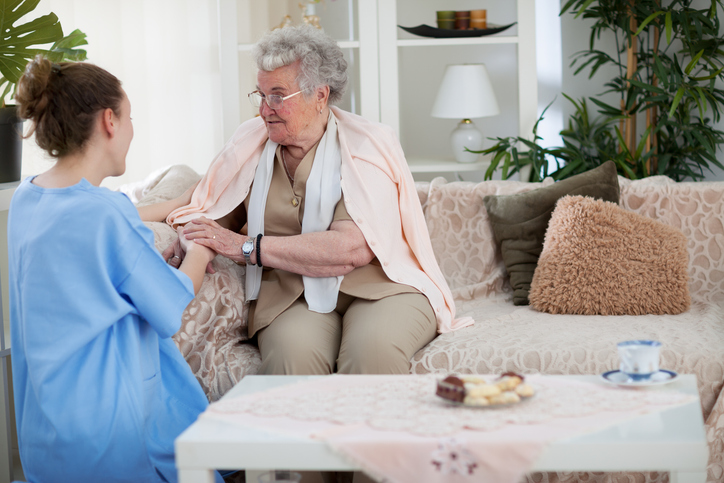
Loneliness is something we all experience at some point in our lives. But for older adults, it can become an ongoing struggle. As we age, the loss of a partner, family members moving away, worsening mobility problems, or retiring from work can all contribute to feeling isolated. And while loneliness may seem like just an emotional issue, it has real and tangible consequences on both our physical and mental health.
No one has to face loneliness alone. Every one of us has the potential to feel lonely, but we all also have the ability to make sure others don’t feel lonely. A kind word, a shared activity, or just the presence of someone who cares can make a huge difference. Companionship brings connection, comfort, and a renewed sense of purpose. At Eximius Support, we believe in the power of human connection to improve well-being and help people live happier, healthier lives.
Here, we talk about how loneliness affects mental health, the ways companionship helps, and why having a caring presence can be truly life-changing.
The Hidden Toll of Loneliness on Our Mental Health
When we think of loneliness, we think it means being alone. But it’s about so much more than that. It’s the feeling of disconnection from others. A feeling which, over time, can take a serious toll on mental and physical health. Research shows that chronic loneliness can:
- Increase the risk of depression and anxiety: A lack of social interaction can make negative emotions worse, leading to persistent sadness, hopelessness, and loss of interest in life.
- Trigger stress and cognitive decline: Social engagement is vital for brain health. Without it, the brain becomes less active, increasing the risk of memory problems and dementia.
- Affect physical health: Loneliness has been linked to higher blood pressure, heart disease, and a weakened immune system, making people more susceptible to illness.
- Lead to sleep problems: Feelings of isolation can cause restlessness, making it harder to fall or stay asleep, which in turn affects mood and energy levels.
Unbelievably, loneliness can be as harmful to health as smoking 15 cigarettes a day. That’s a shocking statistic and just shows us just how crucial it is to stay socially engaged and connected.
How Companionship Improves Mental Well-being
The good news is, loneliness isn’t inevitable. With the right support and meaningful companionship, older adults can regain a sense of connection, joy, and purpose. Here’s how companionship makes a real difference:
1. Providing Emotional Support and Comfort
Having someone to talk to, someone who truly listens, can ease feelings of loneliness and sadness. Conversations of any and all kinds create warmth and connection.
A caring companion provides:
- A safe space to express thoughts and feelings
- Encouragement and reassurance during difficult times
- A sense of stability and routine, making daily life feel more structured
Knowing that someone genuinely cares can boost confidence and make each day feel a little brighter.
2. Encouraging Social Interaction
Many older adults withdraw from social situations. Too often they fear being a burden, have mobility challenges, or simply don’t have anyone to share the experiences with. A companion helps bridge that gap by encouraging social interaction in ways that feel comfortable and enjoyable.
Companionship can involve:
- Visiting friends and family
- Attending community events, clubs, or classes
- Engaging in virtual connections like phone or video calls
Even small social interactions, like greeting a neighbour or chatting with a shop assistant, can make a difference in someone’s sense of belonging.
3. Rebuilding Confidence and Self-Worth
Loneliness can sometimes lead to feelings of worthlessness, especially for those who used to lead active, busy lives. Having someone who values their thoughts and experiences helps rebuild self-esteem.
Companions encourage engagement in:
- Reminiscing about the past and sharing personal stories
- Playing games, solving puzzles, or doing creative activities
- Learning new skills, such as using technology to stay connected
These activities help individuals feel capable, involved, and appreciated for who they are.
4. Reducing Anxiety and Depression
Human connection plays a vital role in emotional well-being. Social interaction naturally boosts mood by increasing levels of serotonin and oxytocin – hormones that help reduce stress and promote happiness.
Companionship provides:
- Distraction from negative thoughts
- A sense of purpose and something to look forward to
- A supportive presence during moments of anxiety or sadness
For individuals with conditions like dementia, having a familiar and friendly companion brings a sense of security, reducing confusion and distress.
5. Encouraging an Active and Healthy Lifestyle
Companionship isn’t just about emotional support – it also encourages a healthier lifestyle. Having someone around makes daily activities more enjoyable and less of a struggle.
Companions can help with:
- Light physical activity, such as walking or stretching
- Preparing and enjoying healthy meals together
- Gentle reminders to stay hydrated and take medications
A little encouragement can go a long way in helping someone stay active, eat well, and maintain good self-care habits.
How Live-in Care Can Combat Loneliness
For those who live alone or have limited social contact, live-in care offers a wonderful solution. A live-in carer provides constant companionship while also assisting with daily tasks.
At Eximius Support, our live-in carers offer:
- Genuine companionship – Engaging in meaningful conversations, shared activities, and everyday routines
- Encouragement to stay connected – Helping clients visit loved ones, make phone calls, or join community events
- Personalized care and support – Tailoring activities and social interactions to individual interests and needs
- Emotional and psychological support – Being there to provide comfort, reassurance, and a listening ear
Live-in care isn’t just about physical assistance – it’s about building relationships and ensuring that no one feels alone.
Final Thoughts
Loneliness is a growing concern, but it doesn’t have to be a permanent reality. Social interaction and companionship can make an incredible difference in mental and emotional well-being. Whether it’s a chat over a cup of tea, a shared walk, or simply having someone there to listen, these moments of connection bring warmth and purpose back into daily life.
At Eximius Support, we believe that everyone deserves to feel valued, supported, and connected. If you or a loved one is struggling with loneliness, we’re here to help. Get in touch with us today to learn more about our live-in care services and how we can bring comfort and companionship into your life.
Further Reading
The Importance of Company During the Holidays
Supporting our clients with respite care
Your Most Common Live-in Care Questions Answered
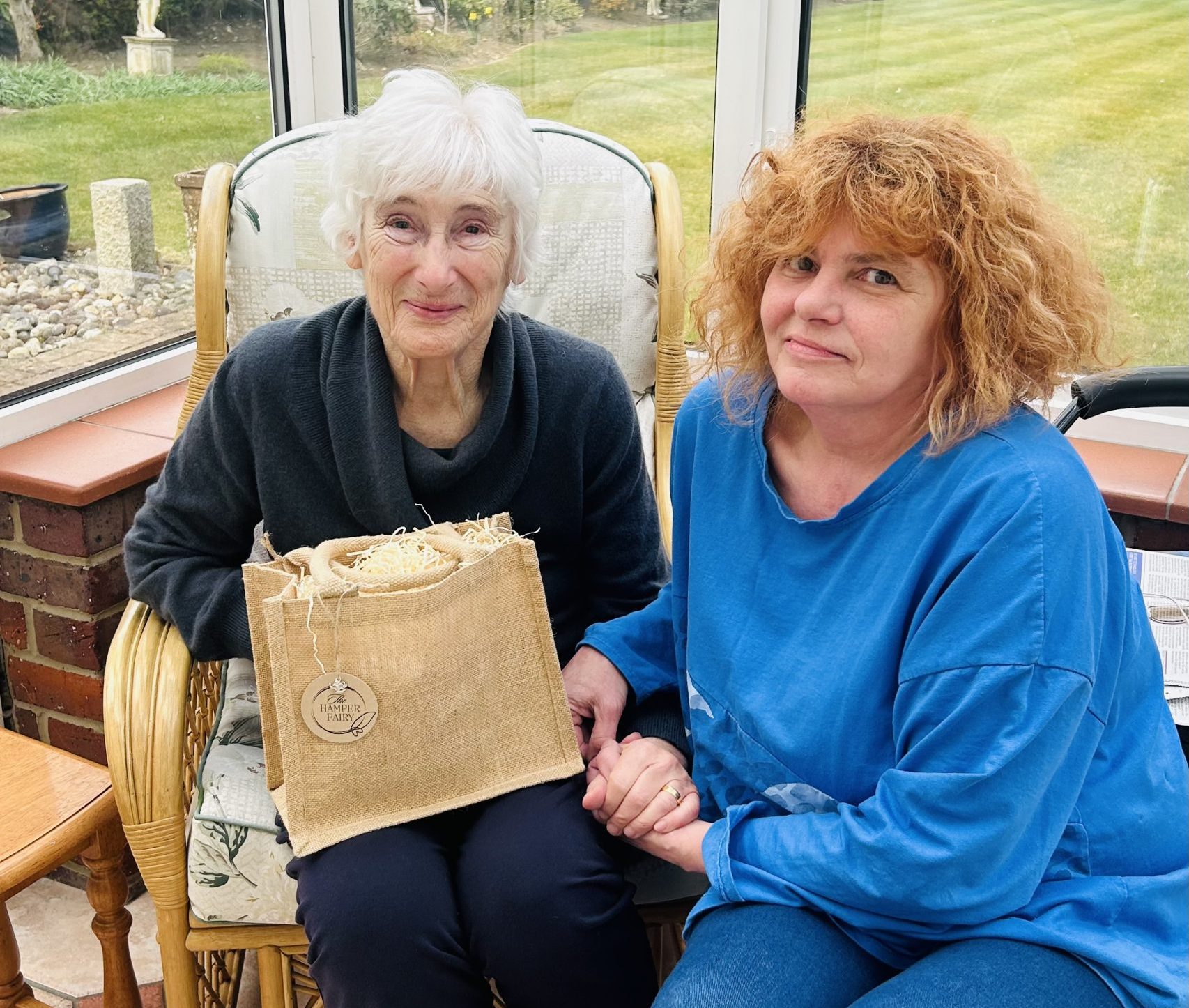
We had the pleasure of visiting our client and carer who won our Marie Curie Bakeathon! She was absolutely delighted to receive her Afternoon Tea Goodie Bag as a special treat.

A huge thank you to everyone who supported us in raising over £200 for Marie Curie – your generosity helps make a real difference!
Eximius Live-in Care supports Marie Curie by actively participating in fundraising events, like bake sales and themed activities such as our recent Marie Curie Bakeathon. Through these initiatives, we raise funds to help Marie Curie provide essential care and support for people living with terminal illnesses and their families.
We also encourage our team members, clients, and their families to get involved, spreading awareness and contributing to this vital cause. Every donation raised goes toward ensuring that people receive the compassionate care they need during challenging times.
Supporting organisations like Marie Curie aligns with our commitment to providing person-centred care and making a positive impact in our communities.


Spinal cord injuries (SCI) have a dramatic effect on a person’s life. A spinal injury can affect movement, daily activities, and ultimately, independence. Spinal injuries can be either complete or incomplete, and knowing the difference is important so patients, families, and carers understand what to expect and how to plan for care. At Eximius Support, we provide care with kindness and understanding. This guide explains complete vs. incomplete spinal injuries, their causes, symptoms, treatment options, and ways to improve daily life.
Spinal Cord Injuries: Complete vs. Incomplete
The spinal cord sends messages between the brain and the body. But when it’s damaged, movement and feeling can be affected. There are two types of spinal cord injuries:
Complete Spinal Cord Injury: No movement or feeling below the injury.
Incomplete Spinal Cord Injury: Some movement or feeling remains below the injury.
Complete Spinal Cord Injuries
A complete spinal cord injury stops all signals from passing through the injury site. A complete injury means no movement or sensation in the affected areas. This type of injury is much more serious, so people with this type of injury require significant adjustments and support in daily life.
Causes of complete spinal cord injury:
Complete spinal cord injuries usually result from a traumatic accident but can also be caused by medical conditions. Some of the most common causes include:
- Car accidents, falls, or sports injuries.
- Severe pressure on the spinal cord from fractures or dislocations.
- Gunshot or stab wounds.
- Medical conditions like tumours or infections that cause total damage.
Effects and Symptoms:
The effects of a complete spinal cord injury depend on the level of the injury but typically result in total loss of function below the injury site. Common symptoms include:
- Complete paralysis (quadriplegia or paraplegia, depending on injury location).
- No sensation below the injury.
- Loss of bladder and bowel control.
- Breathing problems if the injury is high up on the spine.
- Risk of pressure sores and muscle weakness.
Treatment and Care:
Complete spinal cord injuries can’t be reversed, so treatment focuses on preventing complications and improving the quality of the patient’s life. Treatment options include:
- Emergency medical care to prevent further damage.
- Physical therapy to help with daily life.
- Wheelchairs, voice-activated technology, and other assistive devices.
- Medications to manage pain and muscle stiffness.
- Personal care and daily support from trained carers.
Incomplete Spinal Cord Injuries
People with an incomplete spinal cord injury still have some movement or feeling below the injury site. The amount of function depends on how much damage has occurred. Recovery potential is generally higher compared to complete injuries.
Types of Incomplete SCI:
There are several types of incomplete spinal cord injuries, each with unique effects on movement and sensation:
Anterior Cord Syndrome: Affects movement but keeps some sensation.
Central Cord Syndrome: Affects arm movement more than legs.
Brown-Séquard Syndrome: Causes weakness on one side and loss of sensation on the other.
Posterior Cord Syndrome: Affects coordination but keeps movement and pain sensation.
Cauda Equina Syndrome: Affects the lower spine, causing problems with bladder, bowel, and leg function.
Causes of incomplete spinal cord injury:
Incomplete spinal cord injuries can result from various medical conditions or trauma. Common causes include:
- Falls and accidents.
- Spinal cord pressure from herniated discs or arthritis.
- Infections, strokes, or tumours.
- Surgery complications or inflammation.
Effects and Symptoms:
Symptoms of an incomplete spinal cord injury vary greatly depending on the type and severity of the injury. Symptoms might include:
- Some weakness or paralysis.
- Partial loss of feeling.
- Muscle stiffness or uncontrolled movements.
- Nerve pain or discomfort.
Treatment and Care:
The good news is that recovery from an incomplete spinal cord injury is possible with proper medical care and rehabilitation. Treatment options include:
- Physical therapy to improve movement.
- Walkers, braces, and other mobility aids.
- Medication, massage, and other pain treatments.
- Electrical stimulation to help muscles work.
- Emotional support to help with mental health.
Living with a Spinal Cord Injury
Adjusting to life after an injury takes lots of time and support. Doctors and carers will develop personalised care plans to help patients maintain as much independence as possible. This is so important for overall well-being and a fulfilling and independent life.
Helpful Strategies:
There are several ways to improve quality of life after a spinal cord injury. Some of the most effective strategies include:
- Personalised Care Plans: Tailored to meet specific needs.
- Home Adjustments: Adding ramps, grab bars, and accessible furniture.
- Assistive Technology: Using wheelchairs, speech recognition software, and robotic limbs.
- Emotional Support: Talking to support groups, therapists, or loved ones.
How Eximius Support Can Help
At Eximius Support, we provide expert live-in care to help people with spinal injuries live with dignity and independence. Our carers and companions provide personalised support and care based on individual needs. We offer a wide range of services to ensure comfort and well-being, including:
If you or a loved one needs professional and compassionate care, Eximius Support is here to help. Contact us today to learn more about our live-in care services.
Further reading:
How Spinal Injuries Can Affect People and Their Families
Spinal Cord Injury And Mental Health
Supporting Our Clients With a Spinal Injury
Daily Mobility Challenges with a Spinal Injury
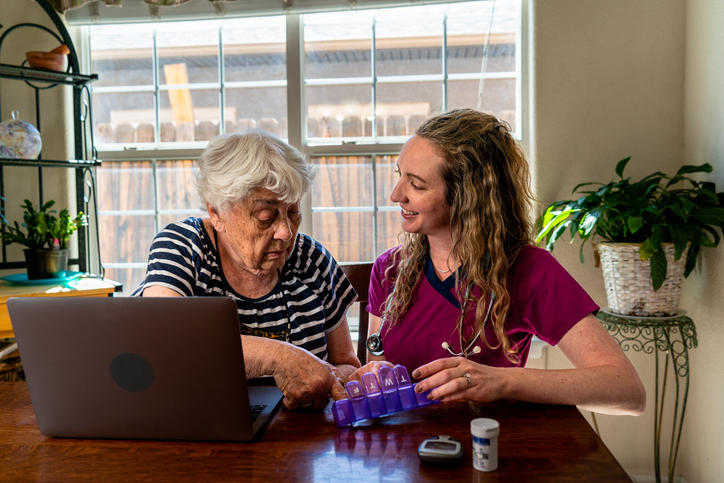
In the ever-evolving landscape of social care, maintaining the highest standards of quality and compliance is paramount. While regulatory inspections, by the Care Quality Commission (CQC), provide essential oversight, truly outstanding care providers go beyond these statutory assessments. At Eximius Live-in Care, we believe in the power of stress testing our services through independent inspections to drive continuous improvement and excellence.
Why Independent Inspections Matter
Independent inspections offer an impartial, in-depth evaluation of a care service, identifying areas for improvement before they become concerns. External independent assessments provide:
Preparation for Regulatory Inspections: These independent assessments ensure that services are fully prepared when the CQC or other regulatory bodies conduct their official evaluations.
Unbiased Feedback: External inspectors, such as those from Kata Care, bring fresh perspectives and rigorous scrutiny to your service.
Proactive Quality Assurance: Spotting and addressing potential weaknesses early help prevent regulatory non-compliance.
Enhanced Confidence: Regular stress testing reassures the service, and its employees are performing at an exceptional standard.
Improved Client Trust: Families seeking care want reassurance that a provider is committed to exceeding, not just meeting, regulatory standards.
Understanding CQC’s New Signal Assessment Framework
The CQC has recently introduced a new Signal Assessment Framework, designed to provide a more dynamic and ongoing approach to regulation. This framework moves beyond periodic inspections and instead continuously monitors service quality using a range of data sources, feedback, and inspections.
This shift places even greater importance on internal quality monitoring and independent inspections, as the CQC will use a broad spectrum of evidence to assess services against their 34 quality statements. Providers that proactively stress test their services can ensure they remain compliant and ahead of any regulatory shifts.
Eximius Live-in Care: A Case Study in Excellence
At Eximius, we understand that exceptional care is not achieved by accident—it requires rigorous self-assessment and continuous improvement. We recently underwent stress testing with independent inspectors, such as Kata Care, ahead of our CQC inspection. This proactive approach allowed us to refine our services, implement best practices, and identify key areas for enhancement.
Our independent inspection was carried out over a four-day period, with two days onsite reviewing quality, compliance, training, speaking with members of the support team, and two days of remote inspection, which aligns with CQC’s new way of working. This hybrid approach provided a comprehensive assessment, ensuring no aspect of our service was overlooked. During the inspection, clients or their representatives, care staff, and collaborators such as charities and health professionals were also spoken to by the inspector, ensuring a holistic evaluation of our service quality.
The result saw, Eximius Live-in Care achieve OUTSTANDING across all 34 quality statements which have been introduced by the CQC. This remarkable achievement is a testament to our commitment to excellence and the impact of independent assessments in preparing our team for regulatory evaluations.
The Benefits of Stress Testing for Eximius Live-in Care
- Regulatory Readiness – Our independent inspections ensured we were fully prepared for the CQC’s rigorous assessment.
- Operational Efficiency – By identifying and addressing inefficiencies, we streamlined our processes to enhance service delivery.
- Enhanced Reputation – Achieving outstanding ratings across all quality statements has reinforced our position as a leader in live-in care.
- Stronger Workforce – Staff morale and confidence increased as they saw the tangible impact of their dedication and high standards.
- Increased Client Satisfaction – Families trust Eximius because of our demonstrable commitment to providing the best possible care.
With the regulatory landscape shifting under CQC’s new Signal Assessment Framework, care providers must take proactive steps to ensure excellence. Independent inspections from reputable providers like Kata Care offer a critical layer of scrutiny that helps care services not only meet but exceed expectations.
At Eximius Live-in Care, our commitment to stress testing our services has proven invaluable, ensuring we deliver outstanding care at every level. By embracing independent inspections, care providers can safeguard their reputation, enhance their service quality, and ensure they remain at the forefront of outstanding care provision.
You can view a Summary of the Report from Kata Care here: Mock Inspection Summary

Living with a spinal cord injury (SCI) can be tough. Everyday tasks that once felt simple now require extra effort, adjustments, or support. But that doesn’t mean your independence and quality of life have to be compromised. With the right strategies, you can overcome daily mobility challenges, and still lead a fulfilling life!
At Eximius Support, we know how important it is to have the right care and encouragement. This article explores common mobility challenges spinal injury patients face and practical ways to overcome them.
Understanding Spinal Cord Injuries and Their Impact on Mobility
A spinal cord injury can change how a person moves and controls their muscles. The effects depend on the location and seriousness of the injury.
Complete vs. Incomplete Injuries: This type of injury results in total loss of movement and sensation below the affected area, while an incomplete injury may allow for partial function and sensation.
Levels of Impact: Injuries higher up on the spine can affect all four limbs (quadriplegia), while injuries lower down may affect only the legs (paraplegia).
Road accidents, falls, medical conditions, and sports injuries are the most common causes of spinal cord injuries.
Common Mobility Challenges for Spinal Injury Patients
Spinal cord injuries bring different mobility challenges to different people. Understanding them is the first step toward finding ways to manage them. Here are some of the most common ones:
1. Limited Lower Limb Function
Having weakness or paralysis in your legs can make standing and walking difficult. Everyday activities like getting in and out of bed, using the bathroom, or moving around at home require adjustments and extra support.
2. Muscle Weakness and Spasms
Nerve damage can lead to muscle weakness or unexpected spasms, which makes movement unpredictable. Stiffness can also reduce flexibility and balance. Stretching, physical therapy, and an individually tailored exercise programme can help manage these symptoms.
3. Balance and Coordination Issues
Simple manoeuvres, like standing up, sitting down, or moving from one position to another, can be tricky. This increases the risk of falls. Handy tools such as supportive seating or grab bars, as well as assistance from carers, can provide stability and reassurance.
4. Using a Wheelchair
Using a wheelchair brings freedom, but it also comes with difficulties. There will always be unexpected uneven surfaces and narrow doorways to navigate, and stairs can make movement difficult. Choosing the right wheelchair and making small changes at home can help improve accessibility and comfort.
5. Pain and Discomfort
Chronic pain, nerve pain, and pressure sores are common and can make moving around even harder. These can be managed with better positioning, specialised cushions, and regular movement to help ease discomfort.
Assistive Devices and Mobility Aids for Spinal Injury Patients
Thankfully, there are so many devices designed to make movement easier and safer:
Wheelchairs: Manual and powered options can give you independence and comfort.
Braces and Orthotics: These help with standing and walking, especially for those with partial leg function.
Walkers and Canes: If some mobility is retained, these aids add stability.
Exoskeletons and Robotics: This cutting-edge technology is helping some patients regain movement through wearable robotic devices. Amazing, right?
Physical Therapy and Rehabilitation
Rehabilitation is such an important part of improving mobility and confidence. A personalised therapy plan may include:
Strength and Flexibility Training: These include exercises that help maintain muscle tone and improve movement.
Occupational Therapy: Teaches you new ways to carry out daily tasks like dressing, eating, and personal care.
Hydrotherapy: Water-based exercises that ease movement without putting stress on the body.
Adaptive Sports and Activities: Engaging in modified physical activities boosts confidence and mobility.
How Live-In Care Supports Spinal Injury Patients
A spinal injury is life-changing, and mobility challenges can be frustrating, but they don’t have to take away independence or happiness. With the right care and support, life can still be rich and fulfilling. For those living with spinal injuries, professional live-in care can make a big difference. At Eximius Support, our carers provide personalised assistance and companionship to help you live a fulfilling, independent life.
If you or a loved one needs support, reach out to us today to see how we can help create a safer, more independent life.
Further reading:
Supporting our clients with spinal injury
Spinal Injuries: Complete vs Incomplete
Supporting Our Clients With a Spinal Injury

It’s important to know the common signs and symptoms of a brain injury so you can get the right help and care. It doesn’t matter if the injury is from an accident, illness, or other health issue, finding it early can greatly help healing and improve life quality. Here are some things to look out for, and if you or a loved one experiences a head injury or noticeable changes in behaviour, you must seek medical help as soon as possible.
Physical Signs and Symptoms of Brain Injury
Brain injuries can cause a range of physical symptoms that may appear immediately or develop over time. These are some of the most common signs to look out for:
Headaches: Persistent or worsening headaches that don’t go away with rest.
Dizziness and Balance Issues: Feeling unsteady, lightheaded, or uncoordinated.
Nausea and Vomiting: These symptoms can occur soon after an injury and may persist.
Blurred Vision: Difficulty focusing or seeing clearly.
Fatigue: An overwhelming sense of tiredness that does not improve with rest.
Sensitivity to Light and Noise: Increased discomfort in bright or noisy environments.
Seizures: In some cases, a brain injury can lead to seizures, which require immediate medical attention.
Cognitive Signs and Symptoms of Brain Injury
A brain injury can affect the way a person thinks, remembers, and processes information. Some common cognitive symptoms include:
Memory Problems: Difficulty remembering recent events or important details.
Confusion and Disorientation: Feeling unsure of time, place, or personal details.
Difficulty Concentrating: Struggling to focus on tasks or conversations.
Slowed Thinking: Taking longer than usual to process information or respond.
Poor Judgment: Making decisions that seem out of character or risky.
Emotional and Behavioural Signs and Symptoms of Brain Injury
In addition to physical and cognitive changes, a brain injury can also affect our emotions and how we behave. It is important to pay attention to:
Mood Swings: Rapid changes in emotions, from happiness to irritability or sadness.
Depression and Anxiety: Feelings of hopelessness, fear, or worry that interfere with daily life.
Irritability: Becoming easily frustrated or angered over small things.
Personality Changes: Noticing big differences in how a person acts or interacts with others.
Sleep Disturbances: Difficulty falling asleep, staying asleep, or sleeping too much.
When to Seek Help
If you or your loved one is experiencing any of these signs or symptoms, especially following a head injury, it is important to go and see your doctor. Early diagnosis and treatment can help manage symptoms and support recovery. A healthcare professional can assess the severity of the injury and recommend the right course of action, whether it’s rest, therapy, or more specialised care.
How We Can Help
At Eximius Support, we understand how challenging it can be to navigate life after a brain injury. Our compassionate and professional live-in care services are designed to provide personalised support that meets your needs. From assisting with daily activities to offering emotional support, we are here to help you or your loved one feel safe, comfortable, and cared for every step of the way.
If you need support or guidance, reach out to us today to learn how we can assist you or your loved one on the path to recovery.
Supporting Our Clients With Brain Injuries
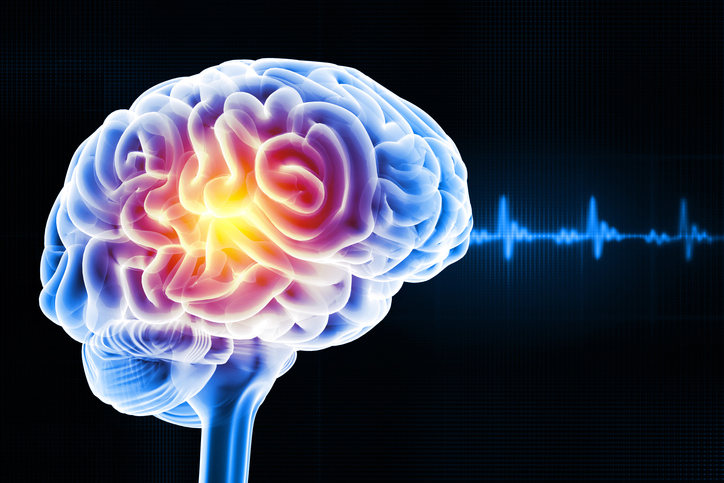
A brain injury can change your life in ways you might not imagine. It can change everything such as your independence, relationships, and everyday activities. Whether the injury is the result of an accident or a medical condition, compassionate and professional support is going to be the key to recovery and maintaining your quality of life. We want to help you understand the different types of brain injuries to help you make informed decisions about care and support.
Traumatic Brain Injuries (TBI)
Traumatic brain injuries are caused by an external force hitting the head. This causes physical damage to the skull and brain. This could be from a fall, a car accident, or a sports injury, for example. The effects of a TBI can range from mild to severe, and everyone’s experience will be completely different.
Here are some common types of traumatic brain injuries, some more mild than others:
Concussion: Usually considered a mild form of brain injury, but it can still cause temporary confusion, headaches, and memory issues. With rest and proper care, recovery is likely. But, repeated concussions can have lasting effects.
Contusion: A contusion is bruising or bleeding within the brain tissue, usually caused by a direct impact to the head. In some cases, surgery is needed to relieve the pressure and prevent further complications.
Penetrating Injury: These injuries occur when an object pierces the skull and damages the brain. This could be shattered bone or a foreign object from an assault or accident.
Diffuse Axonal Injury: Caused by rapid movement of the brain within the skull, this type of injury can lead to widespread damage, affecting communication between brain cells. Recovery often requires long-term rehabilitation and support.
Acquired Brain Injuries (ABI)
Unlike traumatic brain injuries, acquired brain injuries occur due to non-traumatic causes, such as medical conditions or other health-related issues. These injuries can develop gradually or occur suddenly, and usually require ongoing care and support.
Common types of acquired brain injuries include:
Anoxic Brain Injury: This happens when the brain is completely deprived of oxygen, leading to cell damage. Situations like cardiac arrest, drowning, or respiratory failure can result in this type of injury.
Hypoxic Brain Injury: In this case, the brain receives some oxygen, but not enough to function properly. Conditions such as stroke, carbon monoxide poisoning, or complications during surgery can cause hypoxic injury.
Stroke-Related Injuries: Strokes happen when blood flow to the brain is disrupted, either by a clot (ischaemic stroke) or bleeding (hemorrhagic stroke). The effects can range from mild weakness to severe physical and cognitive impairments.
Infections: Brain infections, such as meningitis or encephalitis, can cause inflammation and long-term complications, requiring specialised care and rehabilitation.
Mild vs. Severe Brain Injuries
Brain injuries can vary greatly in severity. Mild injuries, such as concussions, often result in temporary symptoms that improve with rest and proper care. Severe brain injuries may lead to lasting physical, emotional, and cognitive challenges. If you or your loved one is facing a severe injury, ongoing support can make a significant difference in maintaining independence and quality of life.
Diagnosis and Treatment
Getting the right diagnosis is obviously essential for effective treatment and recovery. Healthcare professionals use a combination of physical assessments, imaging tests such as MRI or CT scans, and cognitive evaluations to determine the severity of the injury. The sooner treatment begins, the better the chances for a positive outcome.
Treatment plans are tailored to each person’s needs and may include:
Medical Care: Immediate treatment to stabilise the condition and prevent further damage.
Rehabilitation: Physical therapy, occupational therapy, and speech therapy to regain lost skills and improve quality of life.
Emotional Support: Counselling and psychological support to help cope with changes and adjust to new routines.
Live-in Care Support: Compassionate carers can provide assistance with daily activities, medication management, and companionship, ensuring individuals feel supported in their own homes.
Living with a Brain Injury
A brain injury can bring so many changes, but with the right support, you or your loved one can continue to lead a fulfilling life. At Eximius Support, we understand the challenges that come with brain injuries, and we are here to provide tailored, high-quality care that prioritises dignity and comfort. Whether it’s short-term recovery support or long-term assistance, we are committed to making a positive difference. If you or a loved one need compassionate, professional live-in care, reach out to us today. We are here to help every step of the way.
Further Reading:
Supporting Our Clients With Brain Injuries